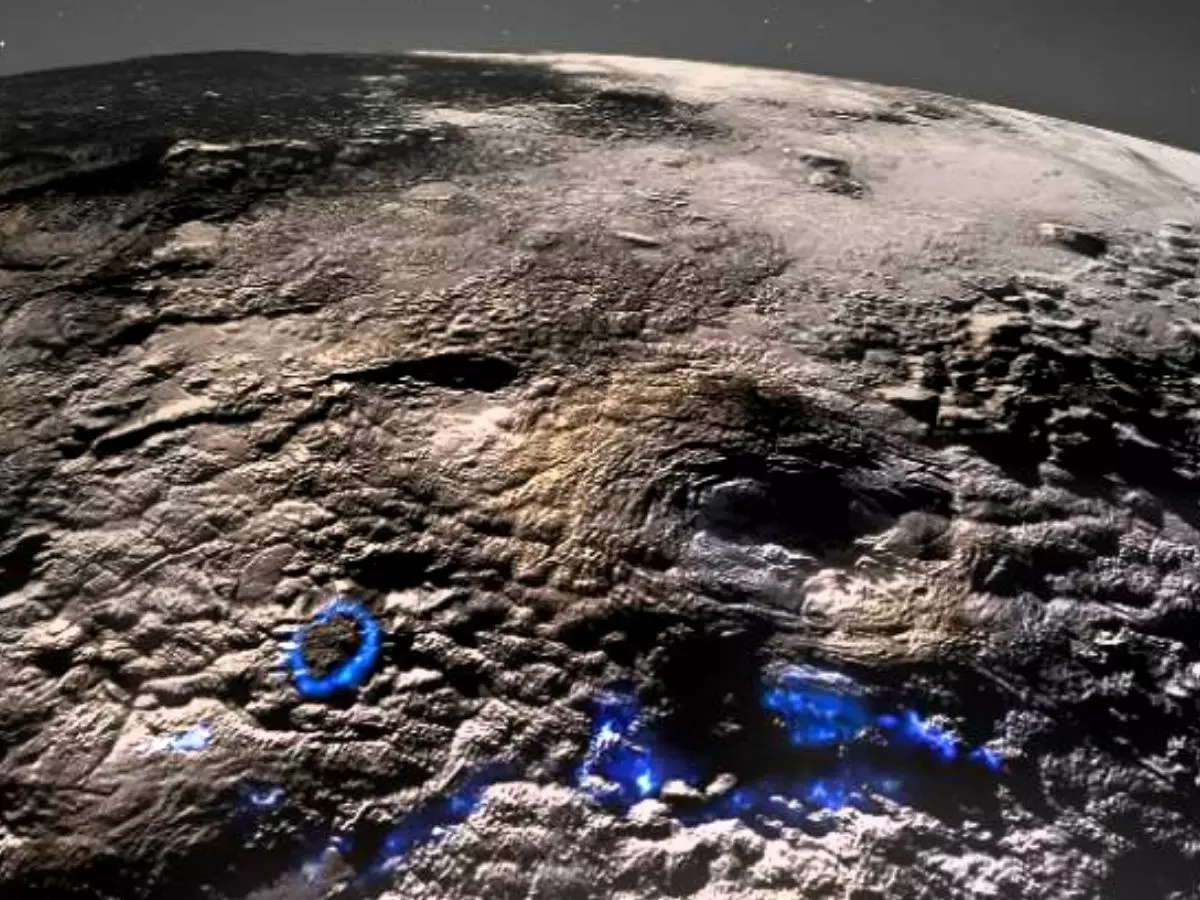Discovery Of Ice Volcanoes On Pluto Has Unlocked The Dwarf Planet's Secrets
Based on their analysis, researchers are of the belief that the area is likely covered in ice volcanoes made entirely of water ice. The range in height from around 7 kilometres tall and around ten to 150 kilometres across.

NASA¡¯s New Horizons spacecraft has captured evidence of ice volcanoes on the smallest planet in our solar system, Pluto.
 NASA
NASA
Also Read: Scientists Solve Pluto's Mysteries With India's Largest Optical Telescope: Here's How
Ice volcanoes aren¡¯t a strange occurrence -- Saturn¡¯s Moon Titan has it and even the dwarf planet Ceres. However, its discovery on Pluto is surprising as previously it was believed that the planet¡¯s interior wasn¡¯t warm enough to actually run volcanic activity.
The discovery was made after an analysis of the images captured by New Horizons conducted by researchers from the Southwest Research Institute in Boulder, Colorado.
The images were captured of an area southwest of the Sputnik Planitia ice sheet. It is known to cover an ancient impact basin that¡¯s roughly 1,000 kilometres wide and includes large rises with irregular flanks.
Based on their analysis, researchers are of the belief that the area is likely covered in ice volcanoes made entirely of water ice. The range in height from around 7 kilometres tall and around ten to 150 kilometres across. Most of these fuse to form even larger structures, as per the team.
 NASA
NASA
Also Read: Pluto's Atmosphere Is Dying, Showing Us How Earth May Eventually Die
Among these is the largest ice volcano that has been dubbed Wright Mons which according to the researchers is almost as large as Hawaii¡¯s Mauna Loa -- one of the largest volcanoes on Earth.
Researchers explained in their study, ¡°The existence of these massive features suggests Pluto's interior structure and evolution allows for either enhanced retention of heat or more heat overall than was anticipated before New Horizons, which permitted mobilization of water-ice-rich materials late in Pluto's history.¡±
Keep visiting Indiatimes.com for the latest science and technology news.
